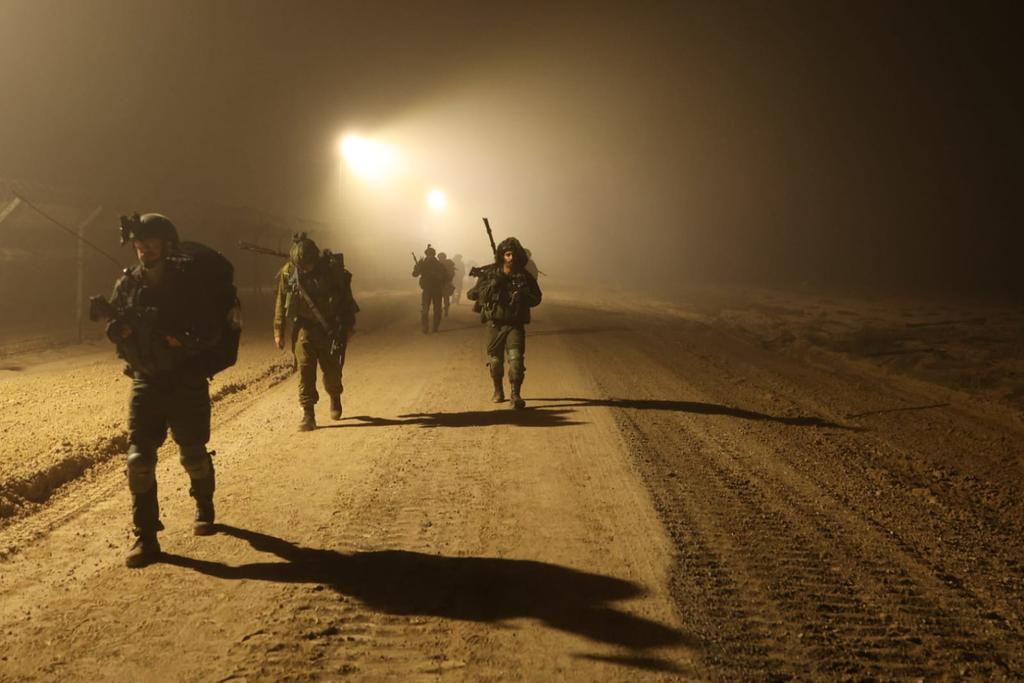Sending our sons into battle without a substantive justification rooted in national security would be terrible.
Should Israel strive to end the war – through some version of the Witkoff framework – or expand by occupying (“taking over”) Gaza?
Deciding this dilemma based on political-coalition considerations would be sacrilege. Sending our sons – including my own – into battle without a substantive justification rooted in national security would be so terrible that I am unwilling to ascribe to the prime minister, who is himself part of a bereaved family. Hence, the path forward is open to scrupulous examination, which in my view leads to the unequivocal conclusion that ending the war is a supreme Israeli strategic interest.
The list of supposed advantages of prolonging the war is meager. Fantasies of emptying Gaza of its inhabitants through “voluntary” emigration or transforming it into a “homeland” populated by Jews must be dismissed. Equally unrealistic, even if desirable, is the expectation of re-educating two million Palestinians for peaceful coexistence, given their deeply rooted religious beliefs, the suffering they endured from us during the war, and the aspirations of the Palestinian national movement.
A full occupation of the remaining parts of Gaza could, ostensibly, serve only one purpose – deterrence, which is indeed critical to national security. However, this is a miscalculation. Deterrence is a matter of perception, derived from the interpretation of facts.
Here are the facts: We defeated the Shi’ite axis with extraordinary sophistication and audacity, and we exercised remarkable determination – contrary to Yahya Sinwar’s expectations – in the way we operated in Gaza, effectively destroying it. We betray both the national interest and the facts when we grant veto power over the perception of victory to the fate of Hamas’s last battalions in Gaza.
How shortsighted, and how much a confusion of tactics with strategy lies in the prime minister’s preference to mortgage the enormous perceptual assets we have amassed in this long war – with the breaking of Hezbollah’s backbone, the ousting of Assad, and delivering a humiliating blow to Iran – in exchange for conquering the remaining quarter of the Gaza Strip. Will those who have not been deterred until now suddenly be deterred by the success of “Gideon’s Chariots 2.0”? Is it wise to shape the perception of Israeli strength, in our own eyes and those of the world, through the one arena of this successful war where our already weakened enemy retains certain relative advantages?
By contrast, the list of disadvantages of prolonging the war is long and weighty, for the Jewish people, the State of Israel, and for each of us personally.
Antisemitism in the West, on the far Right and the far Left, has been around for a long time. But most of the public – even in Europe – is reasonable, neither antisemitic nor anti-Zionist. Wisdom is required to steer the campaign in a way that prevents the extremist margins from capturing a foothold in mainstream global opinion.
Insulting Macron and other heads of state is no substitute for managing the war with a deep understanding of the currents of public opinion, which we still have the power to influence. Who would have believed that young people in both US parties would favor the Palestinians over us? That the West, in large part, would recognize a Palestinian state? That Germany’s chancellor, a friend of Israel, would impose an arms embargo? At the same time, we are losing legitimacy in the eyes of a significant swathe of American Jewry – a critical pillar for maintaining our influence in US politics.
Occupying Gaza will greatly intensify this trend, which is a strategic threat to our future. A full conquest of the Strip, likely leading to a military administration, would place a crushing financial burden upon us. The finance minister, who just allocated billions for food aid to Gaza, has avoided presenting the projected costs of governing Gaza: continuous humanitarian aid to two million Gazans, management of civil services like healthcare, sanitation, education, welfare, not to mention the ongoing security expenses. Estimates speak of astronomical sums – tens of billions annually.
Most importantly, a national strategy must also consider the social dimension. Israelis are deeply divided over the hostages. Many see the continuation of the war as their de facto abandonment. We are grappling with moral questions – dozens or more uninvolved Gazans are killed every day. I am unwilling to accept that the war is driven by coalition politics, but many believe this is so. What will happen if, heaven forbid, these divisions seep into the army itself, tearing it apart with internal discord? That would be a decisive blow to Israeli deterrence.
Israel has already won the war, with the conclusion of the campaign in Iran. Extending it into the neighborhoods of Gaza is a mistake, one that runs counter to Israel’s strategic interest.

